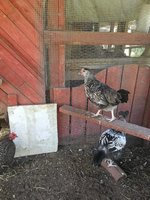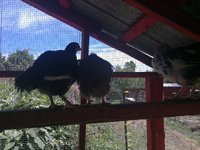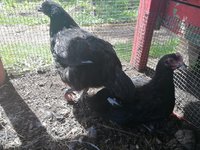Olandpoohandchickens
Chirping
After having REALLY bad luck with getting hens, we found someone selling their 3-4 months old hens, one Grey Dorking, one gold laced whydonatte mix, and 4 susses/maran mix. We are going to pick them up tomorrow afternoon. I am of course paranoid so posting here to ask for your opinion on if they are all hens or not? These are the only pictures they sent me, apologize for poor quality. Thank you everyone!






